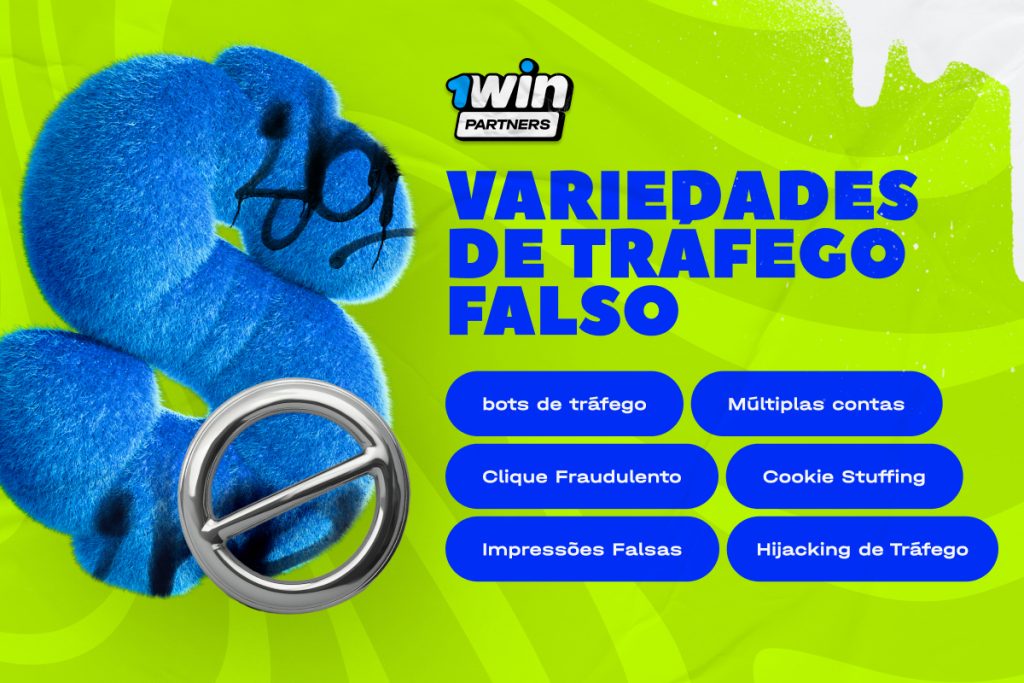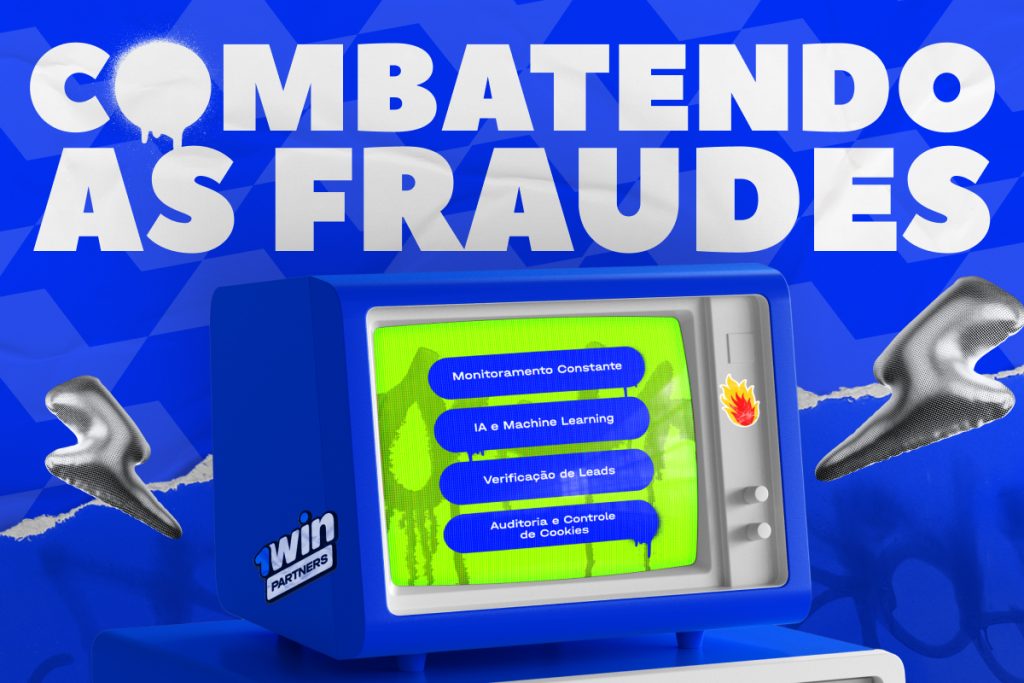Traffic arbitrage fraud is a growing problem in affiliate marketing, which harms both advertisers and businesses. Where there is money, there are inevitably scammers looking to exploit the system, and affiliate marketing is no exception.
Let’s explore some of the main types of fraud that exist, how they impact the sector and, most importantly, how to avoid fraudulent traffic. Follow 1win Partners on social media so you don’t miss any content. Instagram, Telegram, Youtube, X and Threads.
Fraud and its varieties in affiliate marketing
What is fraud? It is the deliberate attraction of low-quality traffic under the guise of valid leads. It is mainly associated with traffic managers who try to circumvent the system and make profits from advertisers. There are also unintentional cases of fraud, especially common among newcomers to the field, when a person thinks they have found a “loophole” that will help them make extra money. But why do traffic managers resort to this type of traffic?
The answer is simple. This traffic is much cheaper than targeted traffic and is common in CPA, CPI, CPL, and COD payment models. Due to the simple conversion points in them, the temptation to make money by investing a minimum of effort is very great. For example, a traffic manager can send a link to a website to all his friends, who, at his request, will register and make a minimum deposit, thus fulfilling the target action of the offer, but their interaction with the advertiser does not continue.
For a traffic manager, massive fraud detected is a risk of suffering financial losses. If fraud is detected, any affiliate network can block the account and, by right, not pay the remuneration due. For the sphere as a whole, this is primarily a loss of reputation, as affiliate marketing is associated with something dishonest. For advertisers, it’s wasted money (when paying for this traffic) as there is no way to interact with it in the future.
Varieties of Fake Traffic

There are several varieties of traffic fraud, including:
- traffic bots – bots that imitate the behavior of real people, performing desired actions through user interfaces. They can leave leads, install apps, respond to surveys, etc.
- Motivated traffic – one of the most popular methods of fraud. It includes all Internet users who perform targeted actions in exchange for a reward. In this case, the reward for the action is the user’s main motivation, but he is not interested in the product itself.
- Multiple accounts – traffic is generated through accounts created by the traffic manager and imitates attractive users. This type of fraud is also developed among users (bonus hunting) with the aim of receiving additional welcome bonuses.
- Click Fraudulent – This occurs when bots or individuals not interested in the product click on ads for the sole purpose of inflating click metrics. This type of fraud drains the advertiser’s budget without generating real conversions.
- Conversion Fraud – sending false conversions so that advertisers believe a sale was made or a lead was generated. In many cases, fraudulent affiliates use automated tools to simulate conversions.
- Cookie Stuffing – when an affiliate places multiple cookies on a device without the user taking legitimate action. In this way, the affiliate tries to claim credit for sales that, in fact, he did not influence.
- Fake Impressions – similar to multiple accounts, this fraud involves creating fake ad “viewers” through bots that generate ad views that have never actually been seen by humans.
- Traffic Hijacking: Fraudulent affiliates can redirect legitimate users to third-party pages without the advertiser noticing, stealing paid traffic through other channels.
Some traffic extraction methods are also called fraud (although some advertisers work with them):
- Mislaid – deliberate manipulation of user expectations
- Spam – mass sending on social networks or email
- Intrusive advertising – popunders, pop-ups and other types of ads that the user is forced to click or clicks accidentally
- Brand impersonation – creating a website or social media page on behalf of a brand and publishing content under its name
Fraud Ad Network
Not just media buyers, but also advertising networks who want to profit from traffic managers. For example, if you accept an offer and use the services of a dishonest advertising network, instead of traffic you will receive a flood of bots or untargeted traffic that does not convert. The money invested in advertising, in this case, will only benefit the advertising network.
Fighting fraud

To combat low-quality traffic, various automatic systems are used that analyze users’ lifetime, GEO, activity, target action speed, etc., and traffic analysis – waiting time.
- Constant Monitoring: The key to combating fraud is continuous monitoring and the use of advanced analytical tools to identify abnormal behavior patterns.
- AI and Machine Learning: AI-based tools can detect suspicious activity in real time, such as an excessive number of clicks or conversions coming from the same source.
- Lead Verification: To prevent lead fraud, many advertisers implement verification systems that validate generated lead information before compensating affiliates.
- Cookie Auditing and Control: Implementing strict cookie tracking policies can help prevent cookie stuffing.
The waiting time is different for all advertisers. But this method of evaluating leads is currently the main method of combating fraud. Advertisers evaluate the retention of attracted leads and, based on this, can draw conclusions about the presence of fraud. For the same purpose, there are baselines and re-deposits.
Conclusion
Advertisers have been fighting fraud since the beginning of affiliate marketing, while trying to maintain loyalty and compelling stories for traffic managers. But everyone agrees that reducing fraud participation will only be possible if the number of people using it as a tool to make easy money decreases.
And if you are not a freeloader and want to cooperate with one of the most loyal affiliate programs with the best conditions on the market, write to the 1win Partners managers. Also subscribe to our social networks, where you will find even more interesting content.




